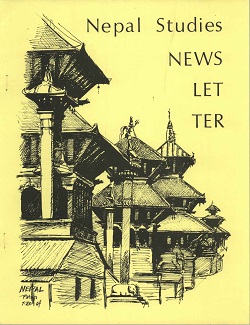Author Biography
Christopher Butler (PhD, sociology, University of California, Santa Cruz, 2016) is an independent scholar living in Kathmandu, Nepal.
Matthäus Rest (PhD, ethnology, University of Zurich, 2014) is an anthropologist. After visiting positions at the University of Oxford, the Nepā School of Social Sciences and Humanities in Kathmandu and UCLA, he currently splits his time between the University of Munich and his family’s farm in rural Austria. He is writing a book on the suspension of the Arun-3 dam in North Eastern Nepal. Apart from unbuilt infrastructures, he likes to think about the future of global milk production and the Krampus.
Abstract
If Ulrich Beck’s definition of ‘risk society’ describes societies increasingly structured by preoccupations with future environmental threats and related insecurities created by modernization, then Nepal’s hydropower community would appear to be quite the opposite, propelled into environmental denial by twin demands for domestic electricity and revenue earned through hydroelectric export. Our research reveals that prior to the April 2015 earthquake in Nepal, the hydropower community was engaging in what Eviatar Zerubavel calls ‘socially organized denial,’ largely ignoring the uncertainties associated with seismic activity. Earthquakes and tremors were viewed as unavoidable realities that should not impede hydropower development. This denial, we argue, was shaped not only by local political realities and demand for electricity, but also by a larger desire to capitalize on available funds from international finance, which are highly contingent upon Nepal presenting itself as a ‘safe’ zone for investment. Our study focuses on the elites of Nepal’s hydro community: the developers, investors, water experts, and government officials who occupy the ‘upstream’ positions at which scientific knowledge is produced and adjudicated. On one hand, the denial or omission of earthquake potential that we witnessed seems to identify the ineluctable challenges that Nepal faces in attempting to integrate its economy into global markets; on the other hand, it indicates the desire of the private sector to reap profits from hydropower in spite of obvious geophysical dangers. These dangers, we argue, are a bankable risk for these elites. However, for the people directly affected by new hydropower infrastructures, these are risks and uncertainties threatening already vulnerable livelihoods.
Acknowledgements
The authors thank Sienna Craig, Mark Turin, and two anonymous reviewers for their valuable comments on this article. Research was supported by the Swiss National Science Foundation, the Humer Foundation for Academic Talent and the European Research Council-funded project ‘Remoteness and Connectivity: Highland Asia in the World.’
Creative Commons License

This work is licensed under a Creative Commons Attribution 4.0 License.
Recommended Citation
Butler, Christopher and Rest, Matthäus. 2017. Calculating Risk, Denying Uncertainty: Seismicity and Hydropower Development in Nepal. HIMALAYA 37(2).
Available at:
https://digitalcommons.macalester.edu/himalaya/vol37/iss2/6


